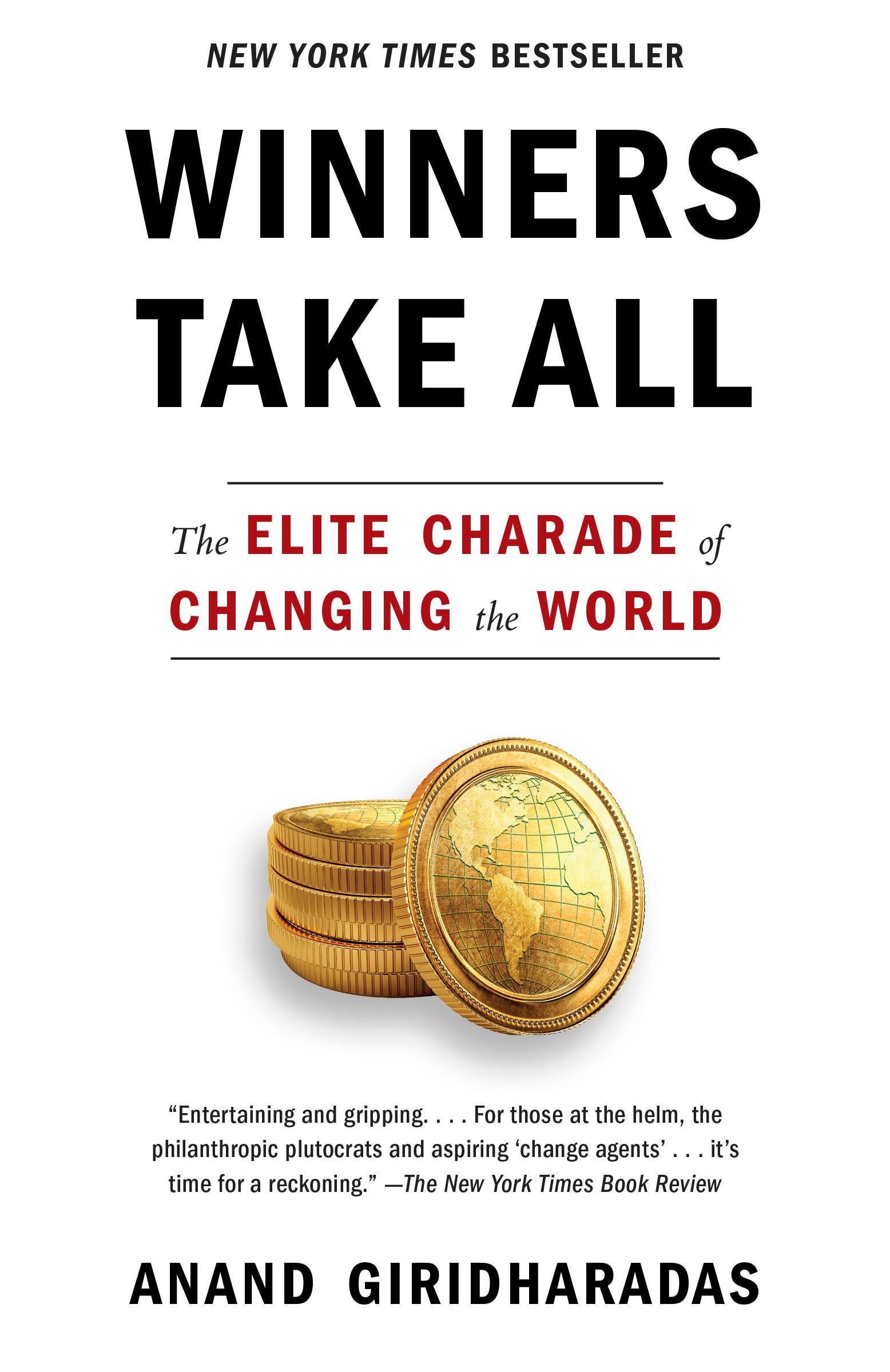

Hinton seems to sense some of the cognitive dissonance between his participation in the system and his internal criticism of it. The chapter is titled “Arsonists make the best firefighters” and focuses on Sean Hinton, a former adviser to Goldman Sachs and Rio Tinto who long ago studied love songs in Mongolia. I really started to lose my patience when a quote from Audre Lorde got juxta-positioned next to a quote from Donald Trump at the beginning of chapter 5. (To be fair, Sinek has a learning disability - but still.

Giridharadas spends his book criticizing Darren Walker, Amy Cuddy, and others for trying to catch more flies with honey than vinegar, but then thought he would be more effective by writing them a book? He does this, knowing that that one of the elites he writes about, Simon Sinek, doesn’t even read but rather has other people read for him. He does this by catering to their sensibilities, balancing his own ideals of social justice (which require acknowledgment of the elite’s complicity in the global problem of inequality) with the gentler language of opportunity and win-wins for all (which soothe the rich man’s conscience and his entrepreneurial interests). Walker is an African American who managed to climb the social ladder and now collaborates with MarketWorld and its elites in an effort to create positive change. This makes him sound like Darren Walker, one of the examples of the do-gooders-by-doing-well he gives in his analysis.


It is a letter, written with love and concern, to people whom I see yielding to a new Faith, many of whom I know to be decent.” He states the purpose of his book is: “among other things, a debate with my friends. He has no problems criticizing Bill Clinton later in the book for not understanding people’s lack of trust with elites, yet how does he expect to gain that trust himself from readers by not owning his own privilege from the onset? He says the reason is because he didn’t want to make the book about him, but at the same time he states, “The best way to know about a problem is to be a part of it.” I think the premise of the work would have been infinitely more powerful had he started by being transparent with his “insider-out” perspective. For someone who is so critical of elites hiding in their hobbit holes, he waits until the acknowledgments section at the end to let you know that he is one of them. Before you read this book, read the author’s bio.


 0 kommentar(er)
0 kommentar(er)
